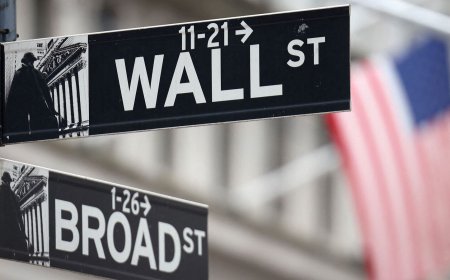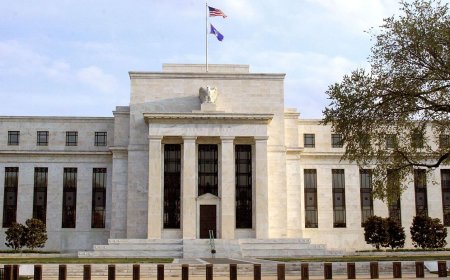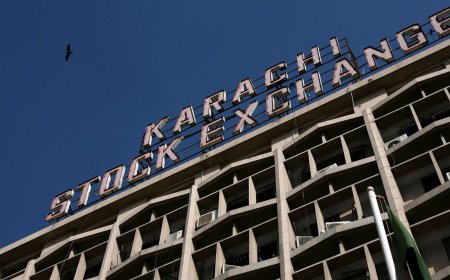Hong Kong Pensions Plan to Cut Treasuries If US Loses AAA Rating
Hong Kong pension funds are planning to cut U.S. Treasury holdings amid fears of a potential U.S. credit rating downgrade. Explore market context, analyst insights, and investor outlook.

Introduction
Hong Kong’s pension funds have signaled a potential strategic shift in their investment portfolios amid growing concerns over the stability of the United States’ creditworthiness. Reports indicate that several major pension plans in Hong Kong are preparing to reduce their exposure to U.S. Treasury securities should the U.S. lose its coveted AAA credit rating. This move highlights the increasing sensitivity of global institutional investors to sovereign credit risk, as well as the ripple effects such a downgrade could have on international markets.
Background: U.S. Credit Rating Concerns
The U.S. Treasury has long been viewed as the gold standard in sovereign debt, holding a AAA rating from major credit rating agencies such as S&P Global Ratings and Moody’s Investors Service. This highest credit rating signals minimal risk of default, underpinning the safety and reliability of U.S. government bonds as a cornerstone of global investment portfolios.
However, in recent years, political gridlocks over debt ceiling negotiations, rising national debt levels, and growing fiscal deficits have sparked concerns among credit agencies and investors alike. Speculation about a potential downgrade, while not imminent, has been a topic of discussion among financial analysts and policymakers. The possibility of the U.S. losing its AAA rating could disrupt markets globally, including in Asia.
Hong Kong Pension Funds: Reassessing Risk Exposure
Hong Kong’s pension schemes, which manage billions in assets, rely significantly on diversified investments to ensure long-term sustainability and meet future liabilities. U.S. Treasuries have traditionally been a favored safe asset due to their liquidity and security. However, the looming threat of a U.S. credit downgrade is prompting a reevaluation of this strategy.
Sources familiar with the plans say that the Hong Kong Mandatory Provident Fund (MPF) schemes and other large pension funds are contemplating reducing their Treasury holdings. The rationale is to mitigate potential credit risk and avoid the volatility that would likely follow a rating downgrade.
“While U.S. Treasuries remain a key component of global portfolios, the changing geopolitical and fiscal landscape necessitates a more cautious approach,” says Dr. James Lee, Chief Investment Officer at Asia-Pacific Asset Management. “Diversification away from U.S. debt instruments could help pension funds safeguard their assets against rating-induced market shocks.”
Market Context: Why a U.S. Downgrade Matters
The U.S. government debt market is the largest and most liquid sovereign bond market in the world. A AAA rating has historically assured investors of the U.S. government’s ability and willingness to meet its debt obligations. Any downgrade could trigger a wave of reassessments in global risk premiums, affecting borrowing costs for the U.S. and other nations.
The impact would not be confined to the U.S. alone; global fixed-income markets could see increased volatility. For Hong Kong and other economies heavily invested in U.S. Treasuries, a downgrade could reduce bond values and raise concerns about portfolio stability.
“The U.S. downgrade would represent a seismic event for global capital markets,” comments Melissa Tan, Senior Analyst at Global Sovereign Ratings. “Investors from pension funds to sovereign wealth funds would have to rebalance portfolios, potentially causing shifts into other assets such as high-quality corporate bonds, gold, or emerging market debt.”
Alternatives and Strategic Moves
Hong Kong pension funds are exploring alternative investment options to balance their risk-return profiles. Potential shifts could include:
-
Increasing allocations to high-quality Asian government bonds: Countries like Singapore and Japan, with stable credit ratings and strong economic fundamentals, may become more attractive.
-
Diversifying into corporate bonds: Investment-grade corporate debt may offer higher yields while maintaining acceptable risk levels.
-
Enhancing exposure to equities and real assets: To improve returns and hedge against inflation, pension funds might increase holdings in equities and real estate.
-
Exploring green bonds and ESG investments: These instruments align with global sustainability trends and offer potential long-term growth.
Investor Outlook: Caution and Adaptability
Institutional investors worldwide are paying close attention to the evolving credit scenario in the U.S. For Hong Kong pension funds, the key challenge lies in balancing safety with growth, especially in a low-yield global environment.
Investors are advised to monitor credit rating developments closely and maintain flexibility in portfolio strategies. A proactive approach, including stress-testing portfolios against credit rating shocks, can better prepare funds for potential disruptions.
“The primary objective of pension funds is to secure retirement incomes,” notes Dr. Lee. “Adjusting exposure to sovereign risks while seeking alternative assets ensures funds remain resilient through uncertain times.”
The possibility of the U.S. losing its AAA rating is prompting prudent reassessments of global investment strategies, including among Hong Kong’s pension funds. By planning to cut U.S. Treasury holdings if such an event occurs, these funds demonstrate proactive risk management amid evolving market conditions. As geopolitical and fiscal uncertainties persist, adaptability and diversification will be critical for pension funds aiming to protect and grow their assets for the long haul.
What's Your Reaction?
 Like
0
Like
0
 Dislike
0
Dislike
0
 Love
0
Love
0
 Funny
0
Funny
0
 Angry
0
Angry
0
 Sad
0
Sad
0
 Wow
0
Wow
0













































































